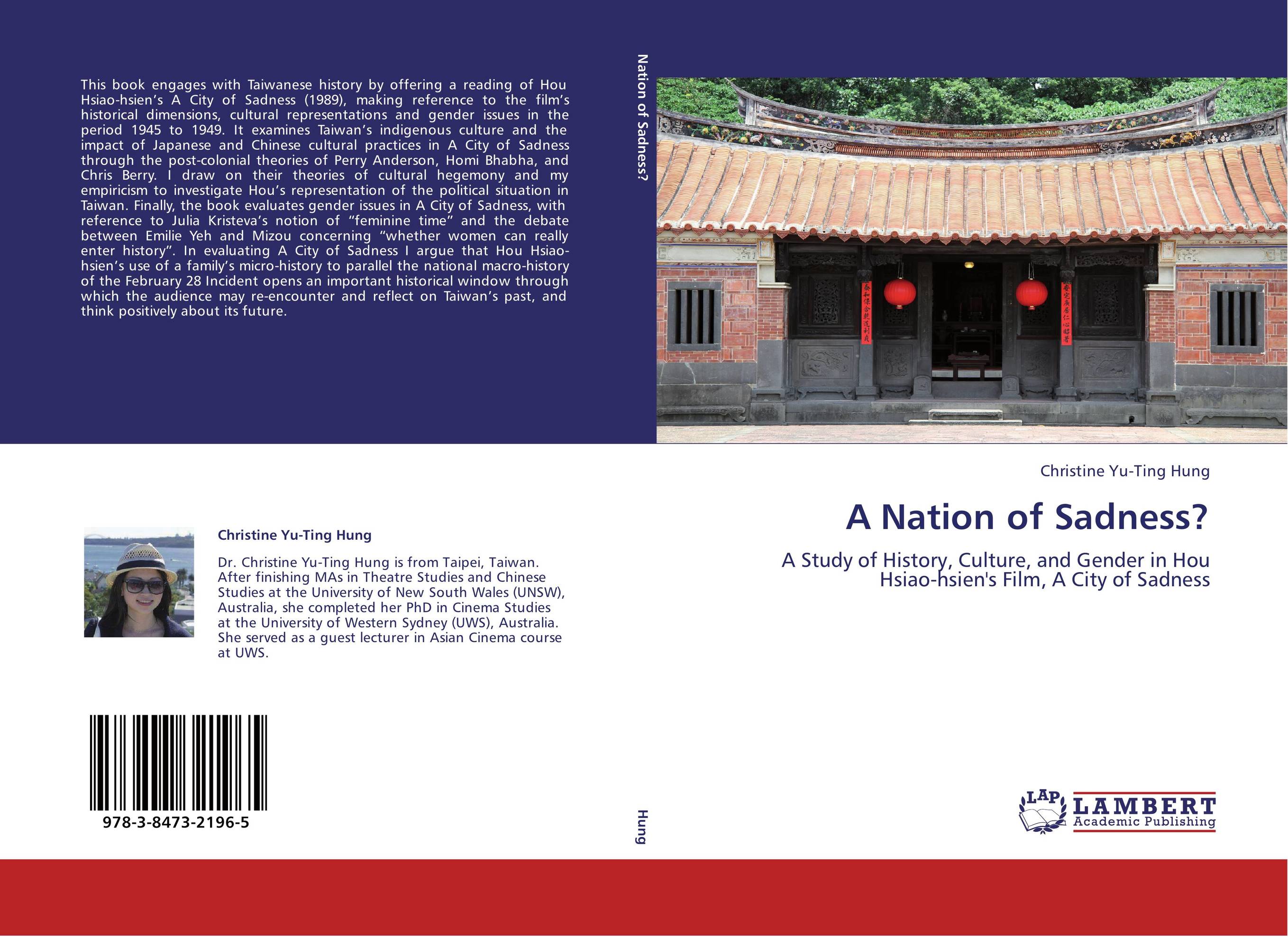| Поиск по каталогу |
|
(строгое соответствие)
|
- Профессиональная
- Научно-популярная
- Художественная
- Публицистика
- Детская
- Искусство
- Хобби, семья, дом
- Спорт
- Путеводители
- Блокноты, тетради, открытки
A Nation of Sadness?. A Study of History, Culture, and Gender in Hou Hsiao-hsien's Film, A City of Sadness

В наличии
| Местонахождение: Алматы | Состояние экземпляра: новый |

Бумажная
версия
версия
Автор: Christine Yu-Ting Hung
ISBN: 9783847321965
Год издания: 2013
Формат книги: 60×90/16 (145×215 мм)
Количество страниц: 100
Издательство: LAP LAMBERT Academic Publishing
Цена: 31211 тг
Положить в корзину
| Способы доставки в город Алматы * комплектация (срок до отгрузки) не более 2 рабочих дней |
| Самовывоз из города Алматы (пункты самовывоза партнёра CDEK) |
| Курьерская доставка CDEK из города Москва |
| Доставка Почтой России из города Москва |
Аннотация: This book engages with Taiwanese history by offering a reading of Hou Hsiao-hsien’s A City of Sadness (1989), making reference to the film’s historical dimensions, cultural representations and gender issues in the period 1945 to 1949. It examines Taiwan’s indigenous culture and the impact of Japanese and Chinese cultural practices in A City of Sadness through the post-colonial theories of Perry Anderson, Homi Bhabha, and Chris Berry. I draw on their theories of cultural hegemony and my empiricism to investigate Hou’s representation of the political situation in Taiwan. Finally, the book evaluates gender issues in A City of Sadness, with reference to Julia Kristeva’s notion of “feminine time” and the debate between Emilie Yeh and Mizou concerning “whether women can really enter history”. In evaluating A City of Sadness I argue that Hou Hsiao-hsien’s use of a family’s micro-history to parallel the national macro-history of the February 28 Incident opens an important historical window through which the audience may re-encounter and reflect on Taiwan’s past, and think positively about its future.
Ключевые слова: gender studies, Cultural Studies, post-colonialism, Taiwanese cinema, film aesthetics



